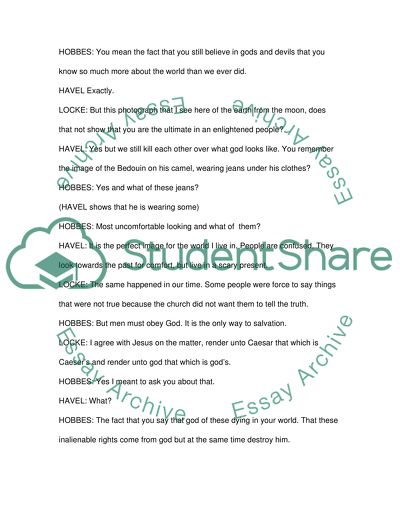Cite this document
(“A Conversation between Vaclav Havel, Thomas Hobbes and John Lock on Essay”, n.d.)
Retrieved from https://studentshare.org/miscellaneous/1501633-a-conversation-between-vaclav-havel-thomas-hobbes-and-john-lock-on-the-idea-of-liberty
Retrieved from https://studentshare.org/miscellaneous/1501633-a-conversation-between-vaclav-havel-thomas-hobbes-and-john-lock-on-the-idea-of-liberty
(A Conversation Between Vaclav Havel, Thomas Hobbes and John Lock on Essay)
https://studentshare.org/miscellaneous/1501633-a-conversation-between-vaclav-havel-thomas-hobbes-and-john-lock-on-the-idea-of-liberty.
https://studentshare.org/miscellaneous/1501633-a-conversation-between-vaclav-havel-thomas-hobbes-and-john-lock-on-the-idea-of-liberty.
“A Conversation Between Vaclav Havel, Thomas Hobbes and John Lock on Essay”, n.d. https://studentshare.org/miscellaneous/1501633-a-conversation-between-vaclav-havel-thomas-hobbes-and-john-lock-on-the-idea-of-liberty.


